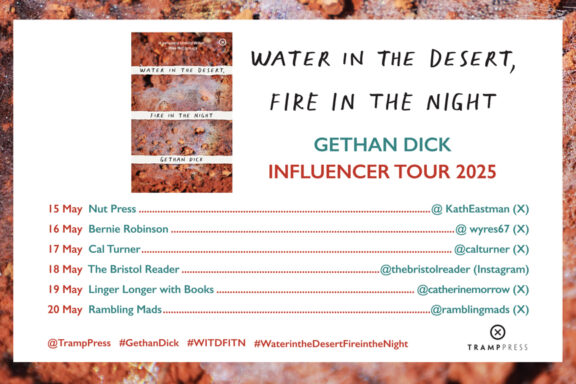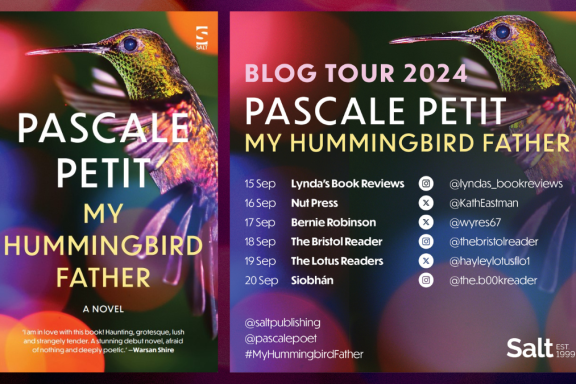 Set in the heatwave summer of 1976 and moving between London’s Soho, Oxford, Paris and the South of France, Andrew Martin’s latest novel The Winker is a world away from his previous one, end of the 18th century York-set Soot, reviewed here.
Set in the heatwave summer of 1976 and moving between London’s Soho, Oxford, Paris and the South of France, Andrew Martin’s latest novel The Winker is a world away from his previous one, end of the 18th century York-set Soot, reviewed here.
London, 1976. In Belgravia in the heat of summer, Lee Jones, a faded and embittered rock star, is checking out a group of women through the heavy cigarette smoke in a crowded pub. He makes eye contact with one, and winks. After allowing glances to linger for a while longer, he finally moves towards her. In that moment, his programme of terror – years in the making – has begun.
Charles Underhill, a wealthy Englishman living in Paris, has good reason to be interested in the activities of the so-called Winking Killer. With a past to hide and his future precarious, Charles is determined to discover the Winker’s identity.
Andrew Martin breathes life into a small section of Paris, taking us strolling through the stylish and sensory arrondissement where Charles lives, as he shuttles between the confines of his life in exile from his apartment to the park, the paper kiosk, the cafe, and back again.
He creates the world of The Winker with fine period detail and close attention to the dire fashions of the day, helping to set the cocky main character of Lee Jones at his ease among the swirling smoke and clamouring bars of seventies Soho, confident that he can control this home environment and almost courting being apprehended.
I particularly enjoyed Lee’s interviews with the journalist and thought these provided an insight into his character that I would have been sorry to miss out on. They show a side to Lee that I think we all have to a greater or lesser extent – the need to play the lead role (or be the lead singer) in your own life story (or band) – but which, in Lee’s case, he considers to be worthy of nothing short of a celebrity turn.
When he picked up his guitar, I willed him to focus on the new songs he was writing, instead of embarking upon his campaign of terror, but figured that he would have been doing that already, had his songwriting been any good and if it hadn’t seemed to find inspiration in his new calling.
It’s telling that he chooses to use a coy, playful term, whether taken from a mundane office item or associated more in his mind with the secretive, thrilling undercover world of espionage, it’s unclear, to describe something far more deadly. At times, I had to remind myself what it was he was referring to, which made me wonder if this was his way of distancing himself from what it was he was actually doing, while dressing it all up as a game.
I enjoyed the creeping game of cat and mouse that plays out over the course of The Winker, and it was refreshing to have characters who were more mediocre creatures than alpha males. You don’t have to like either Lee Jones or Charles Underhill to find one or both of their characters interesting; I not only wanted to follow their story strands to see how they would resolve but also to see how they were connected.
The payoff doesn’t come until the very end of the book but it’s well worth the wait when it does; in particular, the way Charles’ part in all of this is concluded gave me goosebumps, from the cold, practically glacial, way in which one of his relatives reacts to what he’s doing.
The Winker is like a less glamorous Seventies version of a bitter but relatable middle-aged British Ripley, with flares and a fluffed soundtrack, and I loved it for that.
The Winker by Andrew Martin is published by Corsair, a Little, Brown imprint. It is available as an ebook and in hardback. You can find it at Amazon UK or buy it from Hive instead, where each purchase helps to support your local independent bookshop. Andrew Martin is a journalist and novelist. For more on his writing, check out his Author Website.
My thanks to the publisher for making a review copy available via NetGalley.



Leave a comment